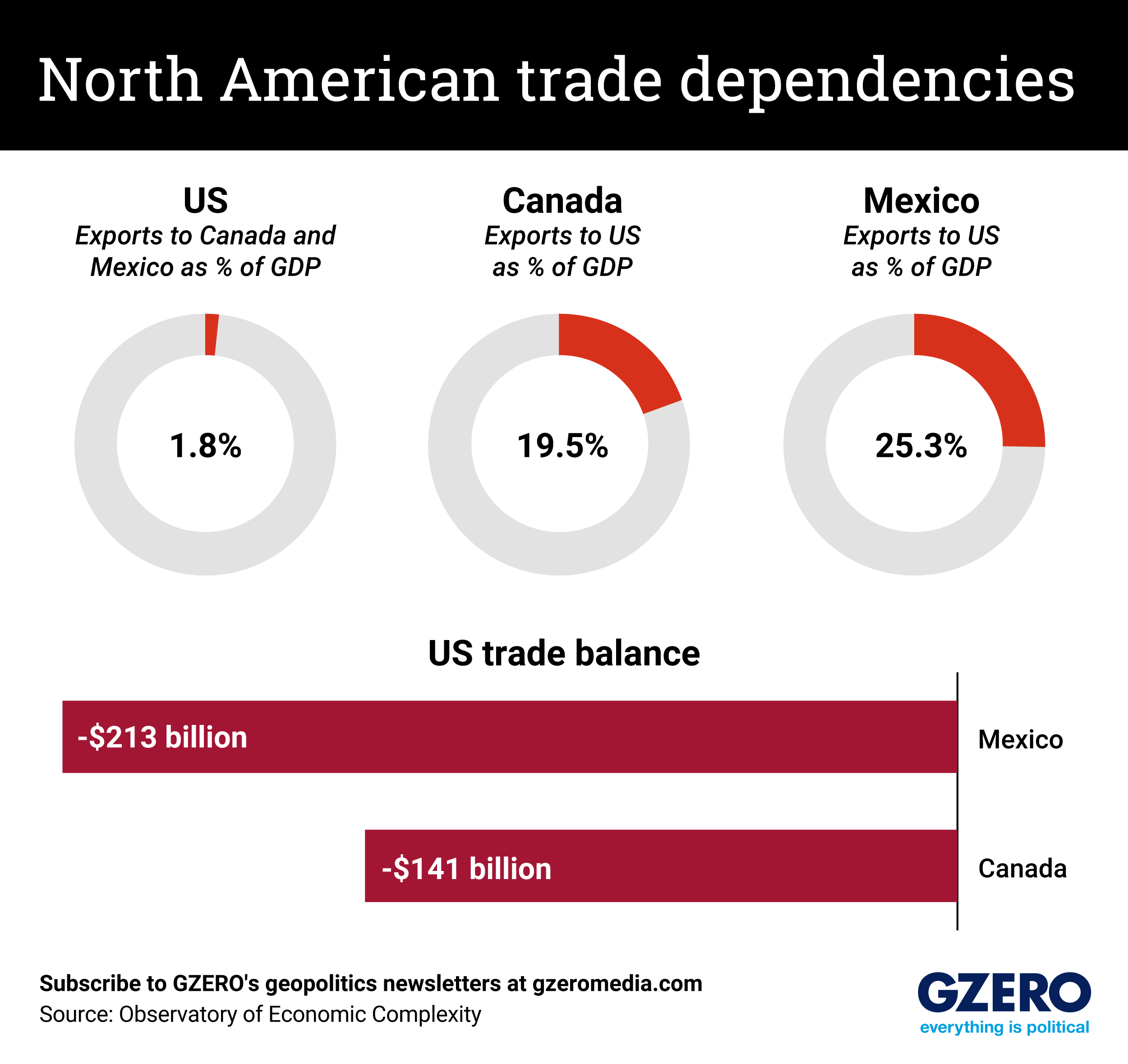March 06, 2025
This week, Donald Trump fired the opening shots in a new North American trade war, slapping 25% tariffs on Mexico and Canada, America’s top two trade partners.
Both countries responded in kind, but by the numbers at least, the US has significantly more leverage in this showdown. That’s because the economies of Canada and Mexico are vastly more dependent on exports to the US than the US is on exports in the other direction.
Here is a look at that dependency, measured by looking at how much of Mexican and Canadian GDP comes directly from exports to the US, and vice versa.
The caveat: These are national-level numbers. At the state level, the picture changes a bit, with the economies of some individual US states way more dependent on Mexican or Canadian trade than the country as a whole is.
North Dakota, for example, derives about 10% of its GDP from exports to Canada alone. Michigan’s exports to Mexico and Canada combined account for 6% of its economy. New Mexico sends 70% of its exports to “old” Mexico.
We’ll look at that in more detail in an upcoming Graphic Truth. For now, here’s the (lopsided) picture at the national level.
More For You
Bad Bunny during the Super Bowl LX halftime show press conference at Moscone Center.
Kirby Lee-Imagn Images
100 million: The number of people expected to watch the Super Bowl halftime performance with Bad Bunny, the Puerto Rican superstar and newly minted Album of the Year winner at the Grammys.
Most Popular
Think you know what's going on around the world? Here's your chance to prove it.
- YouTube
An imminent US airstrike on iran is not only possible, it's probable.
Americans are moving less — and renting more. Cooling migration and rising vacancy rates, especially across the Sunbelt, have flattened rent growth and given renters new leverage. For many lower-income households, that relief is beginning to show up in discretionary spending. Explore what's changing in US housing by subscribing to Bank of America Institute.
© 2025 GZERO Media. All Rights Reserved | A Eurasia Group media company.
